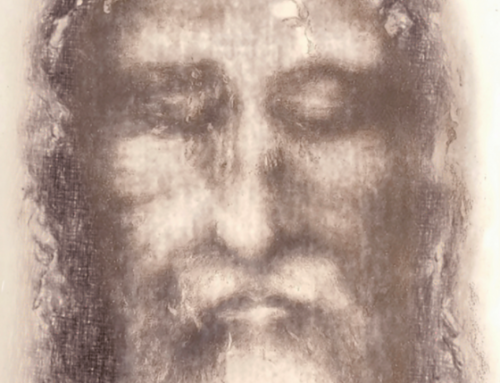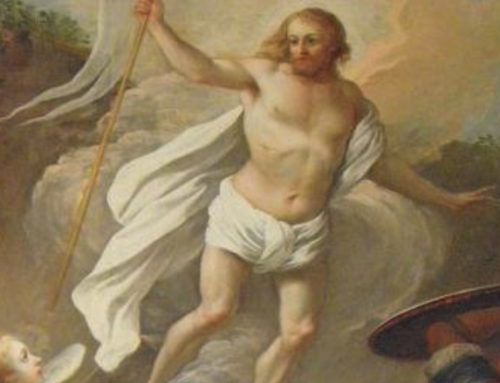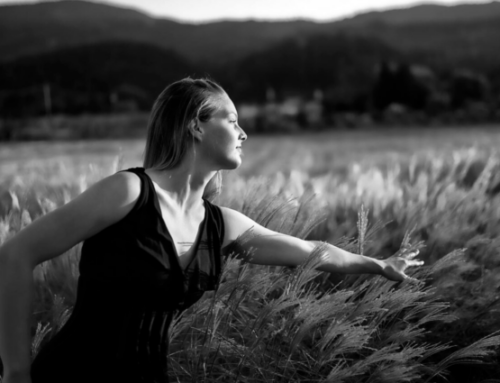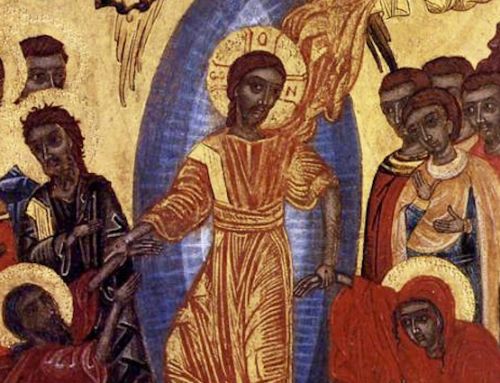 Some years ago I had what one might call a life altering experience. It was not an aha! moment, a grand revelation. It was a more subtle affair, whose importance has become clearer to me through the years, and is one that should be shared as we live through these odd times.
Some years ago I had what one might call a life altering experience. It was not an aha! moment, a grand revelation. It was a more subtle affair, whose importance has become clearer to me through the years, and is one that should be shared as we live through these odd times.
I was on an island when I was still a young assistant professor. It was summer. The meltemi had gone on strike. The wind that had kept us cool had disappeared. It was swelteringly hot. The stones, and even the earth emanated heat. The home in which I was living had no air conditioning. It had no fans. My Godmother, who is a world-famous author and literary critic, had given me a novel to read a few days earlier. It was about a serial killer. “It is extremely well written,” she had said. “Tell me what you think.”
I know that she had no sinister intentions when she handed me the book. She was (and is) always insisting that I read in different languages to keep them sharp, and the novels she suggests are always worth reading. That specific novel, however, made for a very turbulent night. When I went to my bedroom at the end of that hot, hot day, I realized that I had to keep all of the windows of my room open, and the doors too, simply in order to be able to breathe. I was also more than midway through the novel with its vivid images of stalking, kidnapping, torture, and all manner of gruesome things.
I didn’t pay much attention to the world around me while I was showering, washing up, and finishing off my prayers. I was too focused on the novel. Reality hit me once I lay in my bed. I could see the open doors, and through them the Bougainville in the moonlight. I knew there were no private guards or alarms on the property. There were only the sea and the stars, cypress and olive trees, reeds, a pool, rocks, and an eminently climbable wall outside. I was alone. I was terrified.
It was on that night that the full weight of the question, “What really do you believe?” hit me.
I knew that I could articulate Aquinas’s Five Ways. I had taught them throughout grad school. I knew that I could indicate how the Five Ways are really just One Way centered on the Third Way, and reformulate that Third Way without the pitfalls of the time clause. I knew Anselm’s ontological proof, its Bonaventurean, Cartesian, Plantingean variants, and could articulate them with great finesse. But on that hot, hot night on an island, lying on a bed in a room with all of its doors and windows open, and serial killers on the loose, none of that mattered. “What do you really believe?” I asked myself. “Forget what Aquinas, the Bonaventures, Anselms, Pascals claimed. What do you believe?”
I had never really asked myself that question. Nor was it a question that was ever really asked of me in my long years of training. I was taught to demolish arguments, to find loopholes in readings, to interpret texts, to articulate my own thoughts regarding the thoughts of others. But I was never asked—or stimulated to ask—“What is really out there?” “What do you really believe?”
Throughout my career as a ‘philosopher’—grad students are taught to call themselves that—I have always known that the most important elements of philosophical arguments are the premises. Once one has a reasonable acquaintance with deductive reasoning, he can do what he wants with those premises. He can use them to argue for or against anything he wants. The middle and late Platonic Academies—not to mention the late mediaevals—taught that lesson very well. Carneades gave a live demonstration of the fact that arguments pro and contra a given case can be constructed using the same premises. One man’s modus ponens, as the saying might go, is another man’s modus tollens.
I have also always known that what the premises are meant to point to—the limits of the premises—is reality: what is. Reality is what really counts—the facts, being—and it is that to which our premises ought to confirm. As fun as it is to dissect arguments, theories, hypotheses, the point is not really the dissecting, dissenting, or agreeing with them. It is seeing if they—and above all their premises—are grounded in fact.
This latter point was not one that mattered much in school or on the job. The reality is that in contemporary thought, thinkers most often ground their premises in “intuitions”—or their close cousins, “feelings”—and not “facts.” “Intuitions” fill contemporary philosophical literature. Quentin Smith had the “intuition” that God cannot exist one night when he heard a wild animal attack another. Rowe had the “intuition” that God cannot exist because of unjustified suffering. They both received tacit approval from Wittgenstein, whose “intuition” was that every system is grounded in “intuitions” that cannot be questioned from within the system, and that cannot be understood outside of them.
The reality is also that we grad students had to write in order to get a job. We had to publish in the best journals, if we wanted the good jobs. The publications had to be written in such a way as to be accepted by “peer reviewers,” who are never really “peers,” and who are more interested in seeing if and when you compare your thoughts to others’, than they are in the “facts.” And you quickly learned to send your articles to be reviewed by “peers” whose “intuitions”—and traditions—matched your own. It was (and is) a waste of time to send an article to a journal whose “peers” had “intuitions” that contradicted (or contradict) your premises.
So there I was on a bed on a sweltering night looking out the open door with images of serial killers racing through my head. And there was the question of questions: what do you really believe?
I knew that night that my peer-reviewed publications meant nothing to me. Arguments grounded in “intuitions” were insipid, and I needed real food. I needed premises grounded in facts. It was then that I thought about the historical evidence of my beliefs: about the Shroud, about the saints, about the conversions of Roman patricians, about miracles. It was only concrete facts, I knew, that would satisfy my mind.
I tell this story for a reason: we are now all being quarantined on an island, our doors are open, and we have no tangible signs of protection. Our fears are being fomented by the media, whose “intuition” is that they can finally regain credibility by fomenting that fear. They are being fomented by scientific websites that do not report “facts.” The Johns Hopkins website is, for instance, improperly reporting the cases of COVID-19 from Italy. It claims that there are 10,149 cases of COVID-19 in Italy, 631 deaths, and 724 recoveries. A quick look at the Italian website shows not just that the numbers are wrong, but also that they are woefully incomplete. The Italians are indeed reporting that there have been 10,149 cases of COVID-19 reported in Italy—they are also saying that there are currently 8,514 active cases of COVID-19. They are also reporting that 58,910 people have been tested for COVID-19, that 877 people are in intensive care units, that 2,599 people are “self-quarantined” at home, that 5,038 people are in the hospital, and most importantly that 1,004 people – and not 724 – have recovered from the disease. The point is that the Johns Hopkins website has not just been reporting the wrong number of recoveries for the last 24 hours. It has been reporting incomplete data since it was put up.
Our universities and colleges are feeding the fear. College after college is closing in the U.S. because of COVID-19. My own college just announced that we have to teach our courses online until the end of March.
The Church in Italy is feeding the fear. There are no public Masses being offered in Italy. They were suspended by the Bishops a while ago for Lombardy and the Veneto—after the Italian government prohibited public assemblies. They are now suspended in all of Italy.
This should not be surprising. The system that educated me, and is educating our youth—including Italian priests—is not interested in facts. It runs on “intuitions” and “feelings.” It has so run for a while. No one paid much attention to Leo XIII’s warnings on modernism.
The good thing about being on an island is that it forces us to ask the question I had to ask myself years ago: what do you really believe? The good thing is that it gives us a chance to go back to the basics: to realize that wisdom must conform to reality, or it is not wisdom, that philosophy cannot be love of wisdom if it disregards the facts.
Let us not waste this chance.
The Imaginative Conservative applies the principle of appreciation to the discussion of culture and politics—we approach dialogue with magnanimity rather than with mere civility. Will you help us remain a refreshing oasis in the increasingly contentious arena of modern discourse? Please consider donating now.
The featured image is courtesy of Unsplash and has been slightly modified for color.







Leave A Comment